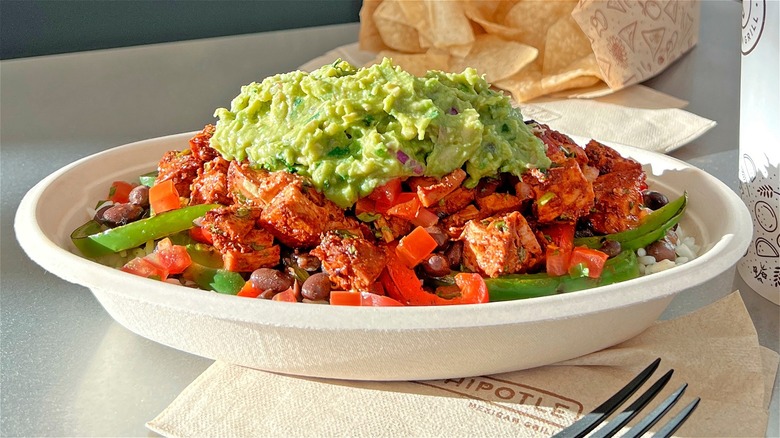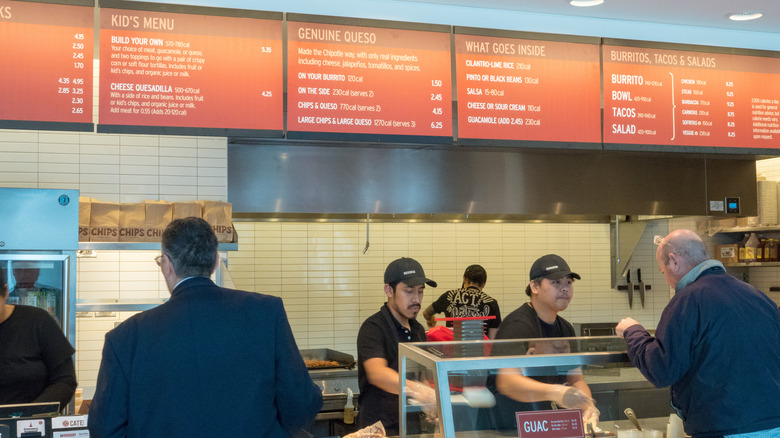Chipotle Responds To California Wage Hike By Raising Prices
When California's new Fast Food Wage legislation went into effect on April 1, there was little doubt that fast-food and fast-casual restaurants would compensate for the hit. Tightening purse strings can take various forms, including worker layoffs, reduced shift hours, efficiency measures, store automation, and more. But perhaps one of the quickest ways to recoup significant cost increases is to raise consumer prices. That's exactly what Chipotle chose to do when the $20 per hour minimum wage for fast food workers went into effect.
The rise in the California minimum wage from $16 to $20, which only affects fast food workers, equates to about a 20% jump for Chipotle labor costs in the state. To counteract lost profit margins, Chipotle raised menu prices by 6% to 7% in its roughly 500 California restaurants, compared to 2023 prices. The uptick affects menu-wide items and does not apply to Chipotle restaurants outside the Golden State.
California labor-cost increases, and subsequent higher menu prices, seem minimally impactful for Chipotle, considering its recent earnings report for the first quarter of 2024. The company revealed increased comparable restaurant sales of 7%, with a total revenue increase of 14.1%. The chain also opened 47 new fast-casual locations in that quarter alone, with plans for up to 315 more by year's end. Nonetheless, Chipotle didn't let California Assembly Bill 1228 take effect without a fight.
Chipotle joined fast-food giants in opposing California wage increase
Increasing fast-food minimum wages was a long time coming for California. Governor Gavin Newsom initially signed a law called the Fast Recovery Act in 2022, establishing a fast-food council with the authority to increase wages and set worker conditions, with planned implementation on January 1, 2023. The industry fought back, citing, among other things, unfair treatment because the increase applied only to workers in a single retail food segment, rather than restaurants across the board. Chipotle jumped squarely into the fray.
Along with fellow fast-food icons such as McDonald's, Chick-fil-A, Starbucks, In-N-Out Burger, and the owner of KFC, Chipotle joined a Save the Restaurants coalition, with a $1 million donation from each brand. They weren't alone in the fight, joined by wide-ranging groups with a stake in outcomes, including business groups, franchisees, and even unaffected smaller businesses that would not be subject to the wage increase requirement.
Chipotle and its fast-food cohorts across the state successfully obtained a ballot referendum for 2024, raising $71.8 million, partially in loans by outside interests. However, an eventual compromise evolved into the new AB 1228 legislation, which includes the $20 minimum fast-food wage and the establishment of the Fast Food Council. The law is now officially in effect, resulting in an estimated overall increase of& 10% in menu costs, and counting, across dozens of California fast-casual chains. That comes on the heels of a reported 29% rise in fast food prices nationwide over four years since 2019.

